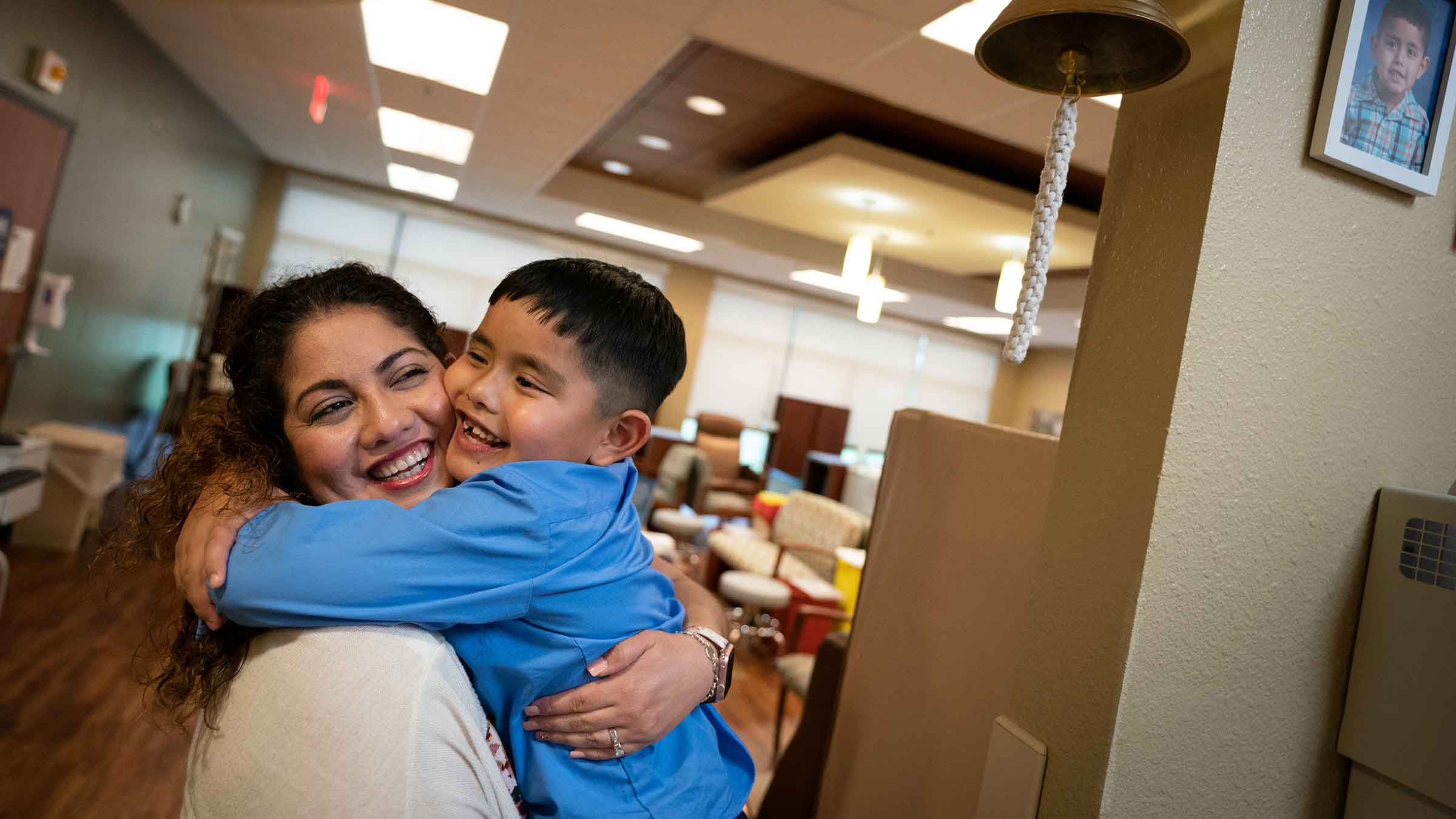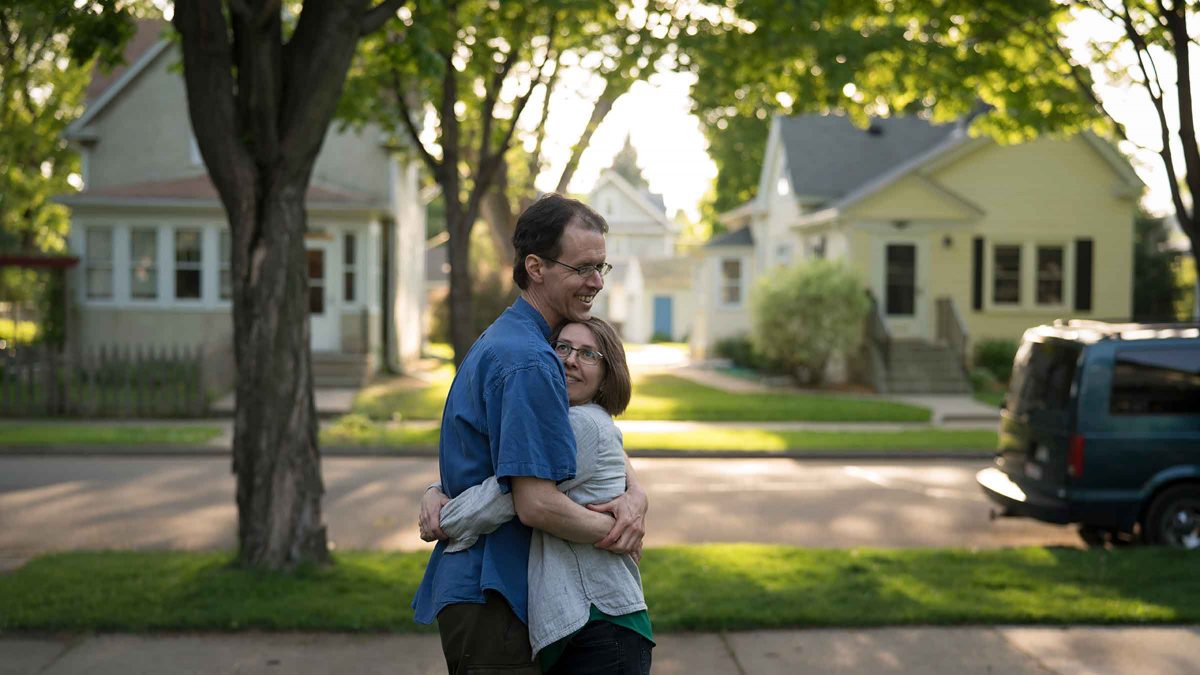How Can a Caregiver Experience Freedom From Burnout?

CaringBridge Staff | 05.31.23
Caring for a loved one can be a fulfilling experience but also highly demanding and emotionally draining.
That’s where caregiver burnout comes into play. It’s a state of complete exhaustion, where one becomes overwhelmed with the stress of looking after someone they love.
This can happen to anyone providing long-term care for a family member, and it’s an important issue that requires attention.
When it comes to caring for cancer patients, the situation is even more challenging. Cancer can be a challenging illness that requires extensive treatment and can take a toll on both the patient and their family caregiver.
If you’re caring for a cancer patient, you may often experience various emotions, including anxiety, depression, and grief, making you vulnerable to fatigue.
What Is Caregiver Burnout?

Caregiver burnout is a state of physical and emotional exhaustion that can occur when you are caring for a loved one over an extended period. It’s a common experience for those who care for chronically ill or elderly family members.
It can cause you to feel overwhelmed, stressed, and drained. When caring for cancer patients, the role’s demands can be even more intense.
Why Is it Important to Address Caregiver Burnout?
When a family caregiver is experiencing exhaustion, it can negatively impact your physical and mental health, leading to chronic fatigue, depression, and other health issues.
This can hinder your ability to provide quality care, which could harm the patient’s recovery and overall well-being.
By addressing this, you and your loved one can benefit from better health outcomes and a higher quality of life.
Causes of Caregiver Burnout
Various factors, including the demands of caregiving, a lack of support, financial strain, and feelings of isolation, can cause this. When these factors become overwhelming, they can lead to exhaustion, fatigue, and a sense of hopelessness, all contributing to tiredness.

Overwhelming Responsibilities
As a caregiver, you are responsible for many things, including emotional support and daily tasks such as primary hygiene care. These tasks can be physically and emotionally demanding, especially if the patient has limited mobility or is dealing with a chronic illness like cancer. Additionally, managing multiple medications can be stressful and time-consuming for caregivers, adding to your overall burden.
Lack of Control
Caregivers often feel like they have little control over their lives and the lives of the loved ones with whom they are providing care. This lack of control can lead to helplessness and frustration, contributing to fatigue.
When caring for a cancer patient, you may feel like you have no control over the patient’s illness or treatment plan or even your own life, as your daily routine may revolve around the needs of your loved one.
Lack of Time for Self-Care
Caregiving can be all-consuming, leaving little time for you to care for your own physical, emotional, and mental health. When you neglect your self-care, you can become overwhelmed and experience burnout. This can manifest as fatigue, emotional exhaustion, and hopelessness.
The lack of time for self-care can be particularly challenging for caregivers of cancer patients, as your responsibilities may be ongoing and require a significant amount of time and energy.
Lack of Social Support
As a caregiver, you may feel that caregiving is a lonely experience and you need more social support. You may even notice that your social circle has gotten smaller as you devote more time and energy to caregiving responsibilities, which can lead to feelings of loneliness and despair.
Symptoms of Caregiver Burnout
Emotional Exhaustion
As a caregiver, you can feel like you’re constantly on the go, taking care of everything from medication management to household chores to emotional support for your loved one. This can be incredibly draining. Over time, this can wear you down and leave you feeling depleted.
Physical Exhaustion
Caregivers are often on the go—managing medications, attending medical appointments, and assisting with daily tasks. This can lead to physical exhaustion and fatigue, which are common symptoms. You may struggle to focus, feel irritable, or have trouble sleeping.
Sleep disturbances are common symptoms, exacerbating fatigue and a lack of energy. Other symptoms of exhaustion include headaches, muscle tension, and stomach problems.
Lack of Concentration
The all-encompassing demands of caregiving can leave little mental space for anything else, leading to constant distractions and trouble remembering things. You may need help concentrating, making it difficult to focus on tasks or make decisions. This can add to the stress, especially when even simple tasks are challenging.
Withdrawal
As a caregiver, you may need more time or energy to participate in social activities or maintain relationships with friends and family. You may find yourself withdrawing from activities you used to enjoy or declining invitations to spend time with loved ones. This can lead to feelings of isolation and loneliness, worsening the symptoms.
How to Experience Freedom from Caregiver Burnout

Create a self-care routine
Self-care is crucial for caregivers to prevent exhaustion and maintain your well-being. Prioritizing exercise, even with a simple walk or yoga at home, benefits physical health, improves mood, and reduces stress.
Establishing a regular sleep routine can improve sleep quality.
Eating a nutritious diet is also essential for energy and nourishment. Finding time for activities that bring joy, such as reading, bathing, or spending time outdoors, can help you recharge and feel refreshed, even if it’s just for a few minutes each day.
Building a Support System
You can connect with other caregivers through support groups or social media, and you can reach out to friends and family who are willing to help.. Even a short break can make a big difference.
You can also check with local hospitals or cancer centers to see if they offer caregiver support services, such as support groups or counseling. Additionally, if time and money allow, therapy can be a helpful tool for coping with difficult emotions and developing effective strategies for managing stress.
A CaringBridge site is an excellent way to build and extend a patient’s support system while offering a variety of benefits to the caregiver as well. Your site can help streamline communications while also centralizing updates and information for friends and family members.
Setting Realistic Expectations
Setting realistic expectations as a caregiver is crucial to avoid burnout. Start by assessing your responsibilities and prioritizing tasks, including time for self-care. Learn to say no when necessary and communicate your limits to others. Be flexible and adjust your plans as needed, understanding that things may not always go according to plan.
Taking Breaks
Allow yourself to take short breaks throughout the day, even if just for a few minutes, to recharge and reduce stress levels. Additionally, plan for respite care to have another caregiver take over your responsibilities for a short time, allowing you to take a more extended break and prevent weariness.
By taking care of yourself and preventing exhaustion, you can provide high-quality care and support for your loved one over the long term.
Delegating Responsibilities
Delegating responsibilities can help prevent fatigue and maintain your well-being. You can ask family and friends for help with caregiving tasks for specialized care. Another option to consider, if the financial resources are available, is hiring a professional caregiver. Remember, delegating responsibilities is an intelligent way to ensure you can continue providing the best possible care without sacrificing your well-being.
CaringBridge can help make the delegation of responsibilities easy and stress-free. Our no cost Planner offers many benefits to caregivers. The Planner can help you coordinate and manage tasks, appointments, and updates which allows caregivers to focus on providing physical and emotional support to their loved ones.
Avoiding Burnout
As a caregiver, it’s essential to prioritize your physical and emotional health to prevent exhaustion. Establish a self-care routine with regular exercise, healthy eating, and enough sleep. Take breaks throughout the day and plan for respite care to rest and relax.
Don’t hesitate to delegate tasks to others.
Remember, you can always seek support from others and recognize that you are not alone. Join a support group, talk to friends and family, or see a therapist. You can provide the best possible care for your loved one with cancer by taking care of yourself.